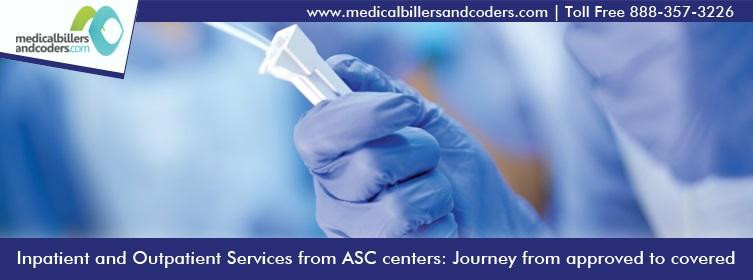
Ever since their inception, Ambulatory surgery centers (ASCs), have been providing improved quality and customer service to the healthcare industry. ASCs offer patients the opportunity to have selected surgical and procedural services performed outside the hospital setting. ASC Centers perform more than 7 million procedures for Medicare beneficiaries needing same-day surgical, diagnostic, and preventive procedures. Multisite practices operate nearly 26 percent of ASCs and the remaining 74 percent are stated to be independently owned.
Because ASCs perform specific services and do so more efficiently, Medicare reimburses ASCs as a percentage of the amount paid to HOPDs, and pays ASC centers 53 percent of HOPD rates. A review of commercial medical claims data found that U.S. healthcare costs are reduced by more than $38 billion per year due to the availability of ASCs as an alternative, high-quality setting for outpatient procedures.
The Basic Requirements
Healthcare facilities in the United States are highly regulated by federal and state entities. ASCs are evaluated through three processes: state licensure, Medicare certification, and voluntary accreditation. For most ASCs to operate they need to be licensed and each state has its own rules and regulations and requirements for ASCs to meet for licensure which can include stringent inspection and reporting.
It should be noted that the legal compliance issues that govern ASC reimbursements are complex and dependent on each state’s federal laws.
- An ASC must be certified and approved to enter into a written agreement with CMS. Participation as an ASC is limited to any distinct entity that operates exclusively for the purpose of providing surgical services to patients not requiring hospitalization and in which the expected duration of services would not exceed 24 hours following an admission.
- ASCs are not permitted to share space, even when temporally separated, with a hospital or Critical Access Hospital (CAH) outpatient surgery department, or with a Medicare-participating Independent Diagnostic Testing Facility (IDTF). Certain radiology services that are reasonable and necessary and integral to covered surgical procedures may be provided by an ASC; however, it is not necessary for the ASC to also participate in Medicare as an IDTF for these services to be covered.
- ASCs are subject to a 2 percent decrease in annual payment if they don’t report quality statistics based on the ASC Centers Quality Reporting Program guidelines. The ASCs must meet 11 required and one voluntary measure, or see the reduction applied to CMS reimbursement in 2018.
- CMS currently doesn’t reimburse for total joint replacement in ASCs, but the Advisory Panel on Hospital Outpatient Payment unanimously recommended CMS remove total knee replacement from the inpatient-only list in 2016. There were at least 16 new procedures added to the CMS ASC payable list for 2016. The new procedures are significant because many private payers base their payment rates on a percentage of Medicare rates, and in some cases, payers are weary of paying for procedures, not on the ASC payable list.
- Medicare Part B (Medical Insurance) covers the facility service fees related to approved surgical procedures provided in ASC centers
- For any item to be covered by Medicare, it must
- Be eligible for a defined Medicare benefit category,
- Be reasonable and necessary for the diagnosis or treatment of illness or injury or to improve the functioning of a malformed body member, and
- Meet all other applicable Medicare statutory and regulatory requirements.
Improve Your ASC Medical Billing With MedicalBillersandCoders!


Comments
Post a Comment